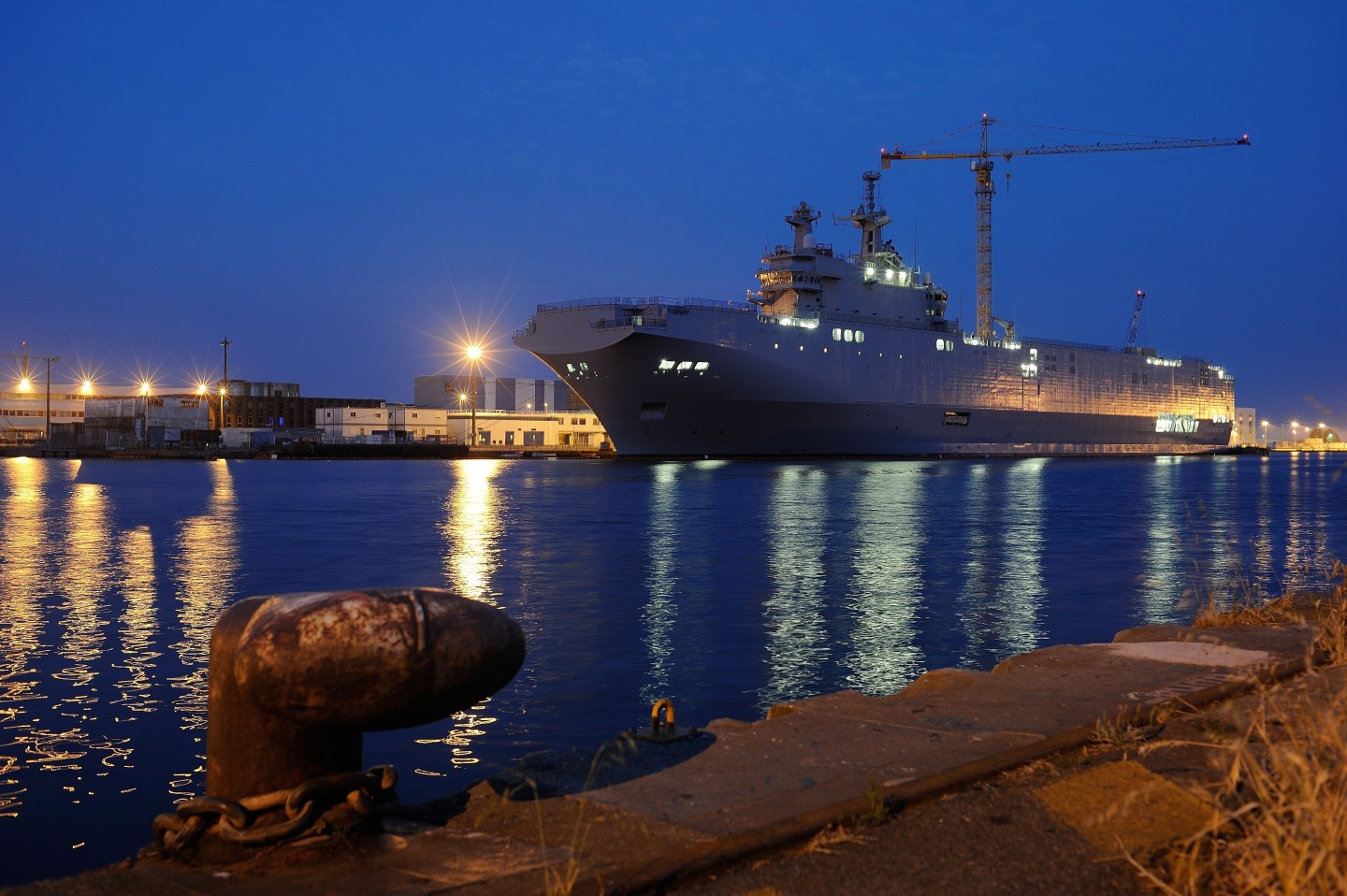If Vladimir Putin thought he was going to forestall more western actions to punish Russia over its role in the Ukraine crisis, he was wrong.
Unimpressed by reports of progress towards a ceasefire agreement, and by a seven-point peace plan released later Wednesday by the Kremlin, France suspended the planned delivery of a state-0f-the-art warship to Russia.
A statement on President Francois Hollande’s website said that “the recent actions by Russia in eastern Ukraine are contrary to the basic notions of security in Europe,” and said “the conditions that will allow France to authorize the delivery of the first amphibious landing ship have so far not been met.”
France’s change of heart on the Mistral issue shows how far European attitudes towards Russia have hardened in the course of the conflict. Hollande had stood by the contract, which is guaranteeing hundreds of jobs in France’s cash-strapped naval dockyards, even after the apparent shooting down of flight MH17 over eastern Ukraine in July.
But the Elysée has now changed its tune after increasing evidence of Russian military presence in Ukraine. The decision will spare Hollande’s blushes at a NATO summit in Wales Thursday that will focus on the situation in Ukraine, whose government has accused Russia of ‘direct and open aggression’ against it. President Barack Obama and other leaders will meet personally Ukraine’s President Petro Poroshenko on the sidelines of the summit.
The E.U. is due to announce further sanctions against Russia Friday, which are likely to include more thorough restrictions on access to financial markets for state-owned banks, energy and defense companies and wider restrictions on providing services to Russia’s oil industry, especially in the development of new and complex projects. Russia needs new fields in the Arctic Ocean and elsewhere to replace declining output in its older producing regions in western Siberia and the Volga.
However, a boycott of the 2018 soccer World Cup–due to be held in Russia–and other cultural and sporting events, appears less likely to be approved in the near term.
The euphoria on financial markets in the wake of Wednesday’s announcements of moves toward a ceasefire had run out of steam early Thursday. The ruble fell against the dollar and the Moscow MICEX stock index was down 0.5%. Western European markets fared better, after Germany, the continent’s largest economy, reported a sharp rise in orders to its manufacturing sector in July.






